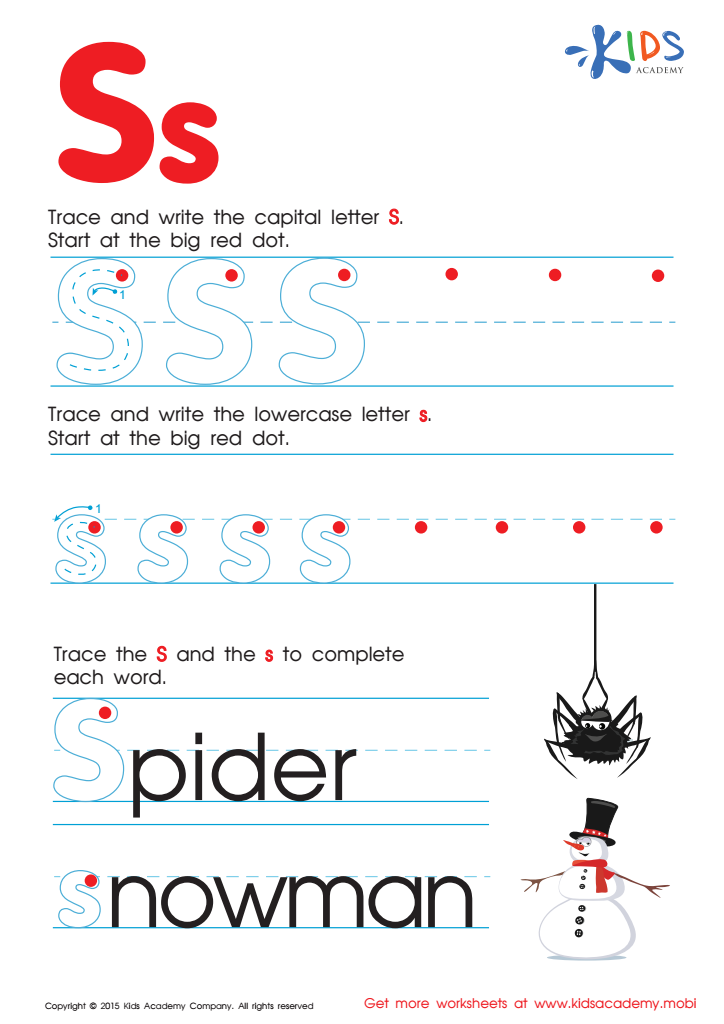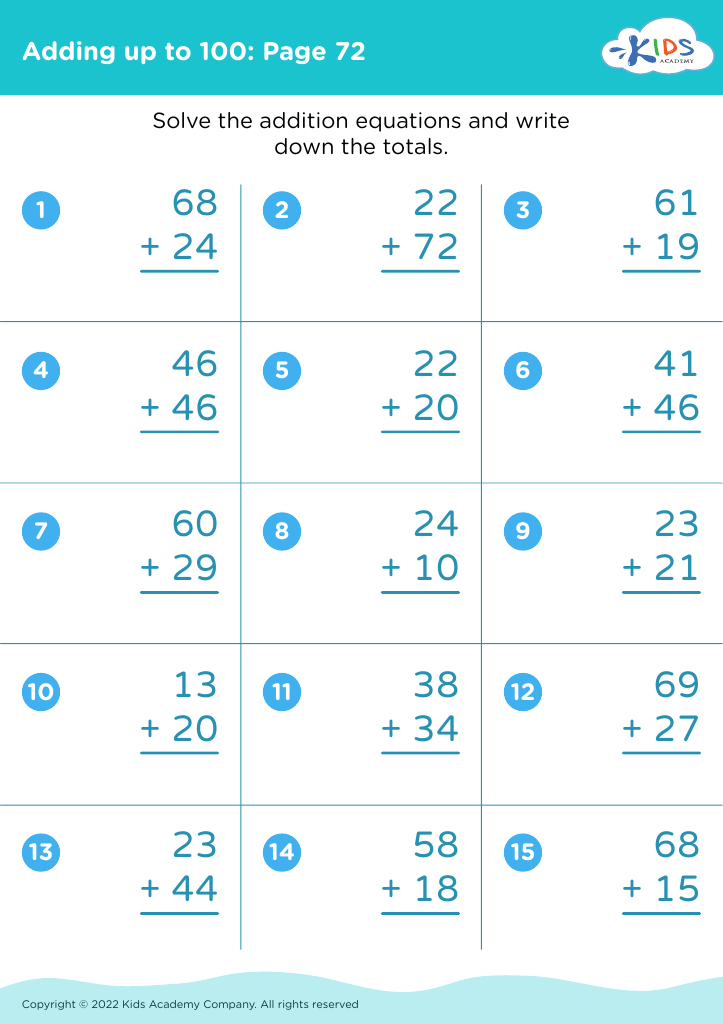Enhance fine motor skills Worksheets for Ages 6-8
4 filtered results
-
From - To
Discover a variety of engaging worksheets designed to enhance fine motor skills for children ages 6-8. Our resources focus on helping young learners develop essential hand-eye coordination, dexterity, and control through fun activities. From cutting and tracing to sorting and coloring, these worksheets are crafted to make learning enjoyable while improving critical motor skills. Each worksheet is tailored to meet the developmental needs of children, ensuring they build confidence as they learn. Whether in the classroom or at home, our fine motor skills worksheets provide an interactive way for kids to practice and succeed. Unlock your child's potential with our enriching resources!


Letter S Tracing Page
Enhancing fine motor skills in children aged 6-8 is crucial for their overall development and academic success. During this stage, children engage in various activities that require precise movements, such as handwriting, art, and everyday tasks like buttoning clothes. Improved fine motor skills contribute to better hand-eye coordination, which is essential for a multitude of activities, from sports to playing musical instruments.
Moreover, fine motor skills are closely linked to cognitive development. As children manipulate objects and refine their dexterity, they also enhance their problem-solving abilities and creativity. Activities that promote these skills foster patience, concentration, and persistence, qualities that are vital for learning.
With the advent of technology and screen time, it’s easy for children to rely on devices that do not engage their fine motor skills effectively. Therefore, parents and teachers should actively encourage hands-on activities like drawing, cutting, sorting, and object manipulation. This not only supports skill development but also builds self-esteem as children become more proficient in tasks. By emphasizing the importance of fine motor skill enhancement, parents and teachers will help children succeed both academically and in their everyday lives, paving the way for future learning experiences.

 Assign to My Students
Assign to My Students







.jpg)











